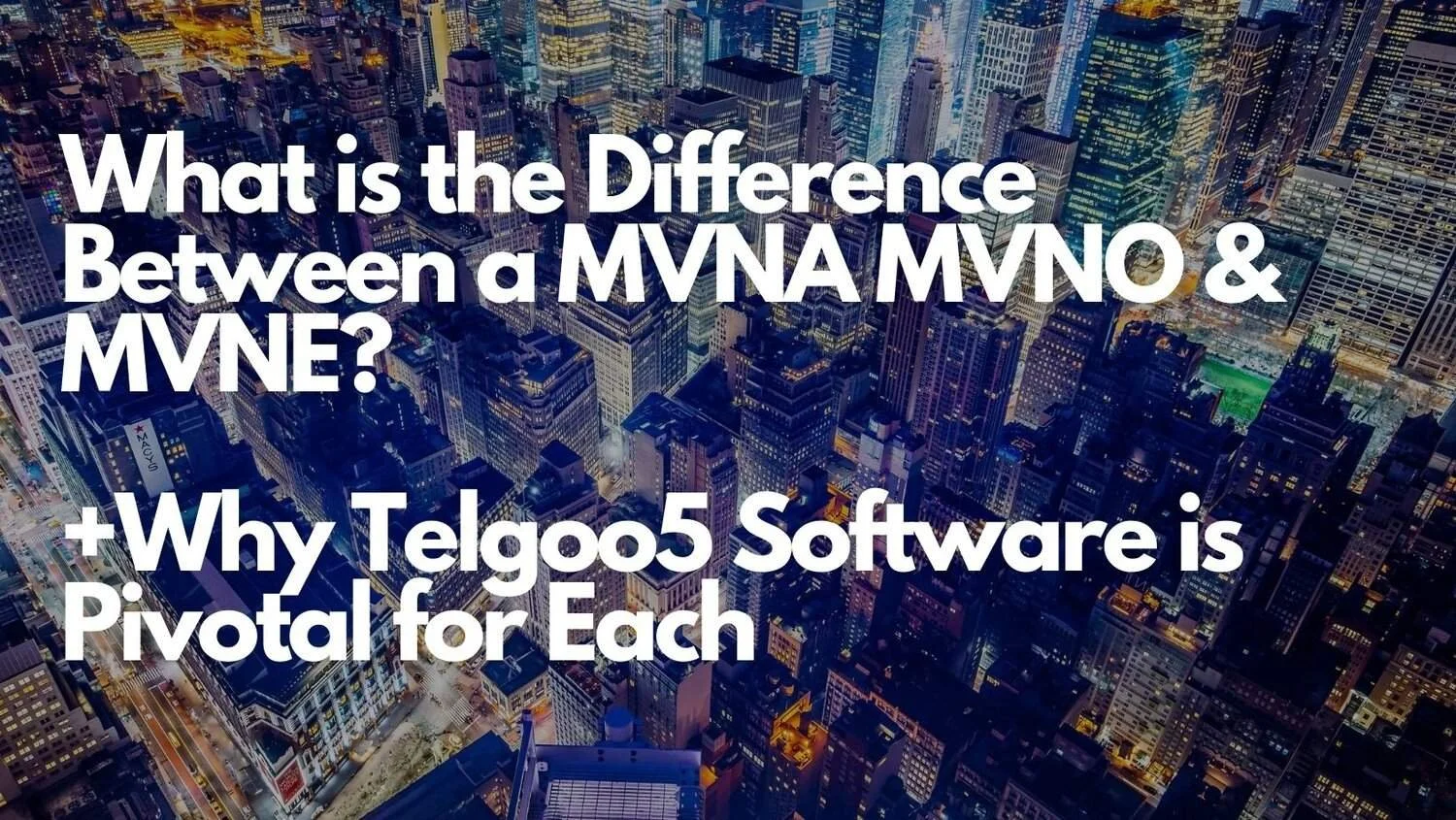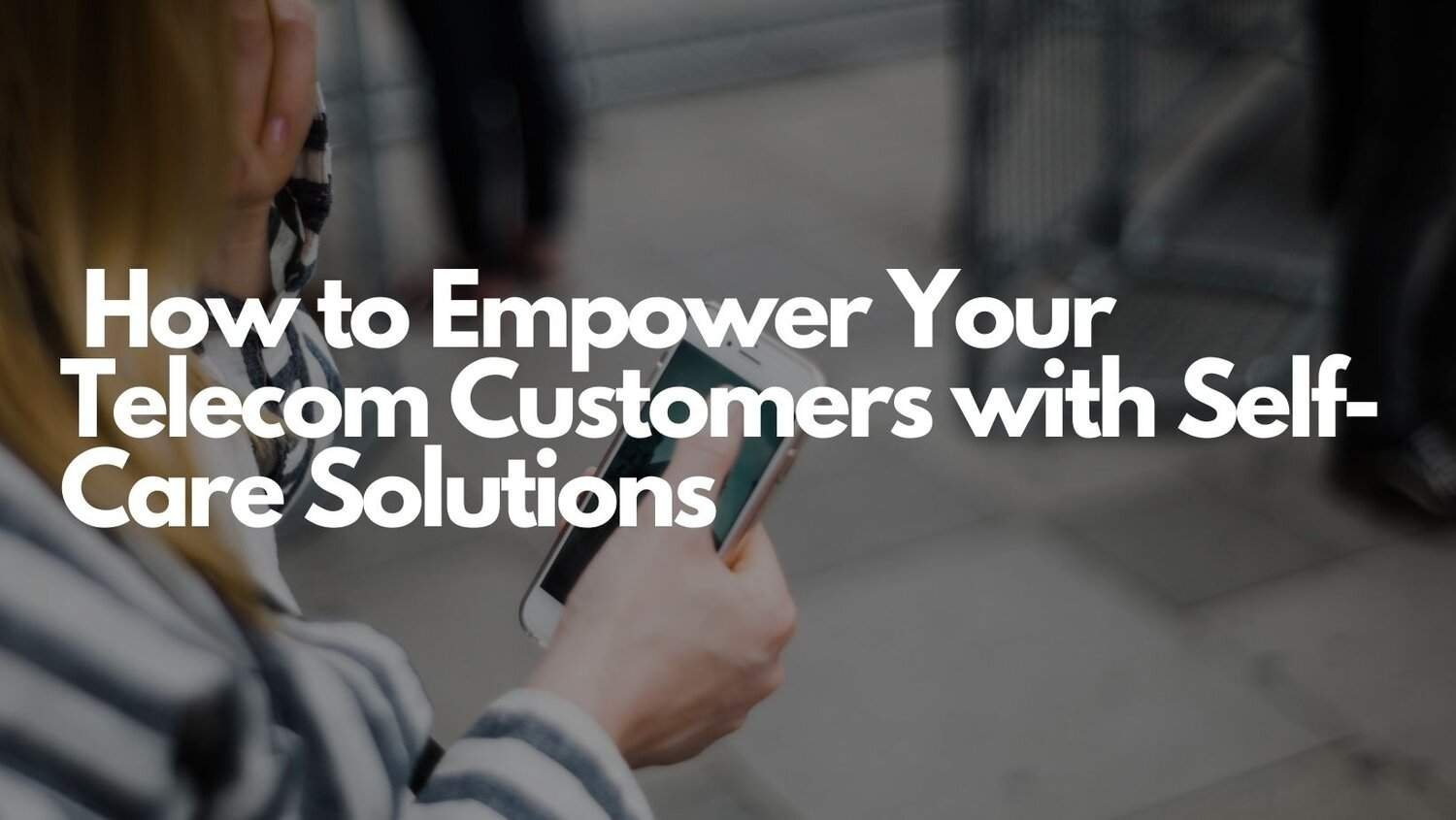What is the Difference Between a MVNA MVNO and MVNE? +Why Telgoo5 Software is Pivotal
MVNO stands for Mobile Virtual Network Operators. It describes a telecom service provider that does not actually own the wireless network infrastructure it uses to provide services to its customers. It is common for MVNOs to access mobile data services via MVNA.
When it comes to the world of telecom services, there is a lot of jargon to learn. The acronym-heavy language can look like greek at first, but once the vocab is demystified everything can be understood. A major part of the difficulty is that a lot of the acronyms look similar, but the systems they represent have distinct differences. Today, we both define and highlight the differences between MVNAs, MVNOs, and MVNEs, along with explaining why Telgoo5 software is pivotal for each.
MVNA
MVNA stands for Mobile Virtual Network Aggregators. It describes a telecom provider that operates in a wholesale capacity. An MVNA provides mobile and data services to Mobile Virtual Network Operators (MVNOs, to be covered in the next section), who then provide billable services to their end users. MVNAs can be challenging to manage, which is where the Telgoo5 platform steps in. Telgoo5 streamlines the billing and operational side of any MVNA business. We help to ensure that services get delivered and that the operator gets paid. Our end-to-end cloud based SaaS platform powers the entire telecom industry, including MVNAs.
MVNO
MVNO stands for Mobile Virtual Network Operators. It describes a telecom service provider that does not actually own the wireless network infrastructure it uses to provide services to its customers. It is common for MVNOs to access mobile data services via MVNA. If you have access to mobile data, there is a chance you are accessing it through an MVNO. Every day, people interact with the telecom business without thinking much about the systems in place to make their connection possible. Telgoo5 offers a fantastic support system to MVNOs. Our modular platform offers an Omni Channel CRM, billing, online charging, and payment engines that drive the global networks that users lean on every single day for data access.
MVNE
MVNE stands for Mobile Virtual Network Enablers. It describes a company that provides network infrastructure like provisioning, administration, operations support systems, and business support systems to MVNOs, who then provide data services to their clients. MVNEs do not actually interact with end-users. While MVNEs are busy supporting MVNOs, Telgoo5 supports MVNEs with our top-notch AT integration that anticipates MVNE needs before they even appear. Telgoo5 appreciates the complexities of the Mobile Virtual Network market and can support companies that provide data services in any capacity.
You may have noticed that the acronyms described above are similar because all three business types operate in the same space - the Mobile Virtual Network space. In many cases, an MVNA provides data to an MVNO, who leans on an MVNE for operational support. The user performing a Google search on his mobile device will have no idea how many companies are involved in making his search happen...unless something goes wrong. Telgoo5 provides an end-to-end cloud-based platform that powers everyone in the MVNE space, with the goal of always providing uninterrupted service to the end-user.
Do not slog through this complicated space alone. Lean on Telgoo5 for all of your telecom needs. We will smooth out the process and make sure you look good along the way.
How to Empower Customers with Self-Care Solutions
Telecom billing is a complicated space. Every day, Telgoo5’s end to end cloud based SaaS platform powers Cable and Internet service providers (MSP’s), Mobile operators (MNO’s), Mobile Virtual Network Operators (MVNO), Enablers (MVNE) and Aggregators (MVNA).
Telecom billing is a complicated space. Every day, Telgoo5’s end to end cloud based SaaS platform powers Cable and Internet service providers (MSP’s), Mobile operators (MNO’s), Mobile Virtual Network Operators (MVNO), Enablers (MVNE) and Aggregators (MVNA). Our modular platform offers an Omni Channel CRM, Billing, Online Charging and payment engines.
All of that sounds like greek to consumers.
All the consumer is concerned about is their own individual service, and consumers today like to feel empowered. They often prefer to manage their own services and bills without having to speak to service provider representatives, and they definitely are not interested in learning all of the acronyms and jargon that exist in this space. Forcing a consumer to burn mental calories trying to figure out how to work with your company is an easy way to discourage them. If you are interested in engaging your consumer base and leaving them with a positive impression of your company, even when you are asking them to pay a bill, then you need to consider a customer self-care solution.
A self-care solution empowers your customers to manage their own accounts online. By putting the power directly in the hands of the consumer, you will both reduce your own customer care costs and increase customer satisfaction. It is truly a win-win solution. When you start to consider a customer self-care solution, make sure to take the following key features into account.
This is what your customers are expecting to see
A quick view into their service usage. A lot of customers like to monitor their usage month-over-month. By making their individual usage highly-visible within a self-care solution, you can save yourselves from a lot of customer support calls. It is best practice to break down service usage by voice, text, and data.
The ability to change plans from within the self-care solution. Customers like to have autonomy. Give them the option to upgrade or downgrade their plans themselves.
Payment solutions & options. Auto-pay solutions help customers to manage their bills and help to ensure that you get paid. Providing payment solutions and invoice tracking is a great way to ensure that everyone is happy.
How self-care solutions benefit your company
Increased efficiency. The more that your customers can handle themselves, the less time, money, and effort your team has to spend on customer care. Self-care solutions can help to reduce support calls, and free up your team to work on larger strategic projects.
Increased flexibility. Self-care solutions can be customized based on customer needs. Regional customizations can be made, service-level customizations, and more. This is a fantastic way to personalize the experience for your consumers.
Improved reporting. Engagement metrics from your self-care solution can help your company to make better, more informed strategic decisions when it comes to customer usage and service offerings.
As your telecom billing provider, Telgoo5 is invested in your success. Self-care solutions are a great way to bring your business to the next level. Check back here for more tips and advice from Telgoo5. Your success is our success.
Your Telgoo5 Dictionary
Discover a valuable resource in the Telgoo5 dictionary, demystifying telecom terminology. Telgoo5's expert explanations empower you to grasp essential concepts with confidence.
Familiarize yourself with online charging dictionary now so that there are no surprises when it comes time to set up real-time charging.
Looking for a new billing system for your telecommunication company? Well Telgoo5 is the solution for you. Our real-time charging engine processes millions of transactions every day, and we keep our standards high by measuring against over a thousand possible parameters. Our system can adapt to your unique and evolving business model in a way that ensures that you are always processing payments without interrupting the customer experience.
But before you decide whether or not the Telgoo5 system is right for you, there is some industry-related jargon you need to understand. Below is your online charging dictionary. These are terms you are going to come across if you choose to work with an online charging system. Familiarize yourself with them now so that when you are ready to set up your real-time charging, there will be no hiccups.
BSS/OSS:
These acronyms refer to ‘Business support system’ and ‘operations support system’, respectively. Basically, the OSS refers to everything that Telgoo5 can offer you. Our OSS can be customized to your business, and features a subscriber management system, sales chain management, config and admin panels, reporting and analytics, and inventory management. Our OSS allows you to outsource your billing concerns to us.
MVNO:
This acronym stands for a mobile virtual network operator. This refers to a wireless communications services provider that does not actually own the infrastructure over which it provides services to clients. This is essentially one way in which you can operate your business. Whether you already have one or are looking to launch a new one, our team will be here to support you.
MVNE:
This stands for mobile virtual network enabler, and it refers to a company that actually owns and provides wireless infrastructure. If you own the network that you use to provide services, then you are an MVNE. We can help you turn your MVNE into a profit machine by optimizing your operations, expanding your reach, and growing your subscriber base.
IoT:
This stands for Internet of Things and refers to a billing system in which all connected devices take part. Think of it as a mini Internet between only the enabled devices. Our services support IoT transitions by capturing and billing for them.
M2M:
This is machine-to-machine communication, and it refers to two devices sharing data without human interference. This type of sophisticated M2M communication is made possible by the data shared over IoT devices.
CDR:
A call detail record is a detailed account of a telecommunications transaction. It will include anything that passes through an enabled device.
BSS:
The billing support system encompasses everything related to the billing process. Telgoo5 uses a postpaid billing system that requires the collection of CDRs so that we can process charges based on actual usage. Our BSS includes CDR mediation process, call barring services, call exception services, CDR rated bills, payment gateway integration, postpaid tariff plan creation, subscriber provisioning (activation and deactivation), and either real time or manual invoice generation.
API:
API refers to an application programming interface (API). It is essentially software that allows two different applications to communicate with one another. It is what processes and delivers your request to the system you are requesting from. At Telgoo5, MNOs and MVNAs receive API control.
This jargon may seem intimidating at first, but once you understand that these acronyms all describe basic processes and services, you will be able to speak the telecom billing and charging language without any problems!
How Virtualization Can Help MVNEs to Offer More Flexible Services
Operational flexibility in one of the single most important attributes customers look out for when they are looking for an MVNE. Many MVNE companies try to address this need by marketing their services with phrases like “in a box”, “scalable”, and similar phrases. In reality, however, most MVNE services are anything but flexible. Such services are usually offered in arbitrary bundles on whose scope the customer has no say. To get a cutting edge, an MVNE needs to make its services truly flexible. In this article, we discuss ways in which MVNEs can utilize the power of the cloud and reliable suppliers to improve the flexibility of their offerings.
Operational flexibility in one of the single most important attributes customers look out for when they are looking for an MVNE. Many MVNE companies try to address this need by marketing their services with phrases like “in a box”, “scalable”, and similar phrases. In reality, however, most MVNE services are anything but flexible. Such services are usually offered in arbitrary bundles on whose scope the customer has no say. To get a cutting edge, an MVNE needs to make its services truly flexible. In this article, we discuss ways in which MVNEs can utilize the power of the cloud and reliable suppliers to improve the flexibility of their offerings.
How Migrating to Cloud Environment Helps MVNEs to Offer Flexible Services
Many MVNEs offer services with a mixture of full cloud and partial cloud-based services. Having full integrated cloud services is should be the ultimate target for MVNEs that intend to be competitive. Migrating all services to the cloud can help an MVNE to have:
More flexibility in the way resources are allocated. This enables allocation of more resources to a certain task without fidgeting with the hardware
Improved security which enables you to provide assurance beyond that of the donor
Unlimited connectivity ability which can enable the company to have over 16 Short Message Service Centers (SMSCs) or more instead of the typical two
Assurance that data will be maintained in one network environment whether it is being stored, processed, or reported.
Up to 99.99 percent uptime even if donors can’t get beyond 97 percent.
Build Your Own Cloud
Photo by panumas nikhomkhai from Pexels
Some MVNEs are responding to the challenge of becoming fully cloud-based by building their own cloud systems. Such projects make services that are considered “off the shelf” and are partly in the cloud to be fully cloud services. Such services include Network Functions Virtualization (NFV), Software-Defined Networking (SDN), and more. An MVNE may be able to improve its session Board Controller (SBC), Mobile Switching Center (MSC), SMSC, Gateway GPRS Support Node (GGSN), and Over The Air (OTA) by re-integrating them in this way. Of course, this may require a big investment in terms of time, human resources, and money. This scenarios does not favor all MVNEs.
Find Suppliers That Enable Flexibility
The reality is that most MVNE companies don’t have the resources needed to deploy everything they need for a full cloud operation. Building your own systems for services like APIs, security patching, regression, debugging, connectivity, and billing may be a toll order for your MVNE and many companies need to work with suppliers to deliver services to the MVNOs. The issue with many MVNE suppliers is that the suppliers do not give them the rights or license to sell freely to third parties. This prevents MVNEs from repackaging their services to meet the individual needs of their customers. To give your customers the flexibility they require, you need to get reliable suppliers that allow you to deploy as they wish without restrictions. Companies, therefore, need to work with the right suppliers to be able to provide flexible services to the customers. You will be able to make all your services including SBC, MSC, SMSC, and GGSN, and OTA fully in the cloud.
Building a single cloud environment for your MVNE will, no doubt, simplify the company’s operations. It also enables MVNEs to offer MVNOs more flexible services. MVNEs can integrate their services by building their own cloud hardware or finding reliable suppliers. At Telogoo5, we provide scalable billing services to MVNE. We understand that each MVNE is unique and their customers may have unique needs that differ from others. That is why we offers flexible and scalable billing services that can be tweaked to meet the needs of individual customers. Contact us for a free, no-obligation quote today.







